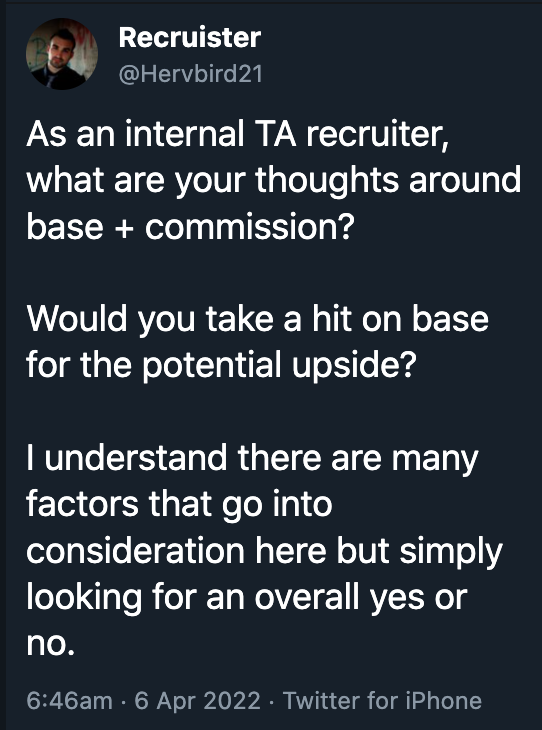I found some cool data that probably got overlooked a while back from CB Insights. Now, this data is from 2016, but it’s super relevant!
CB Insights did some testing with their own email newsletter that went out to 175K+. A very big sample, and the reality is they have the exact same goal as we all do, Get Candidates to Open Our Email!
These four things work really well in getting people to open your email:
1. Brand Names. CB found that using a big brand name like Apple, Google, Nike, etc., in your subject line increases your odds greatly of getting someone to open your email. Now, you might be asking yourself, “Tim, how the heck am I going to use a brand name in my recruiting emails!?” How about something like, “3 Ways we are a better place to work than Apple!”
2. Short Titles. Less is more when it comes to attention-grabbing subject lines! I suggest under five words if possible. “Are we paying too much?” or “I’ve Got a Quick Question” or “Sackett” – Yep, in my own testing, the one email that gets open at a higher rate than any other is when I only put my last name in the subject line!
3. Negativity. This seems counter-intuitive. No way! People love positivity. You are right, but negativity draws them in! “How Candidates Fall on their Face!” will get opened way more than “How Candidates Succeed!” Again, in ten years of blogging and making headlines, this data also rings true. I get way more interaction on negative headlines than positive headlines.
4. Surprises. Different viewpoints that people don’t expect. “Punching Your Boss Can Get You a Raise!” or “Older Workers Have More Energy Than Millennials!” or “Hiring Dumb People!” Basically, people open these because they don’t agree with the headline. What the heck is Tim talking about today!?!
So, if all of these things work. What does CB Insights say doesn’t work?
What should we stop doing with our subject lines?
- All of the opposites of the above! Long headlines, positive headlines, boring, etc.
- Question Headlines. “What 3 Things Are You Doing to Hurt Your Brand!” While Buzzfeed has made billions with these clickbait headlines, CB found readers are getting fatigued with these types of headlines. (I will tell you “The X Things to do…” headlines still work in my world. 5 Ways to Hire More People! Will always do well.
- Broad topics do worse than Niche. A headline that says “5 Ways to Attract More Talent” will do worse than “5 Ways to Attract More Nurses Right Now!”
The key to great email subject lines is they get opened! If you send out a hundred emails to candidates and no one opens them, it doesn’t matter what the content is and how much time you spent making it perfect. Get Them To Open Your Emails! Is the single most important thing you should worry about first!
It’s very Recruiting 101, and it’s something almost every recruiting shop struggles with, but then we go and focus on the picture we’re using. Does it have a puppy and a kid in a wheelchair? No, stop the presses! Stop it. Fix the basics first, then worry about doing the higher-level stuff.
What is your most responsive email subject line?

